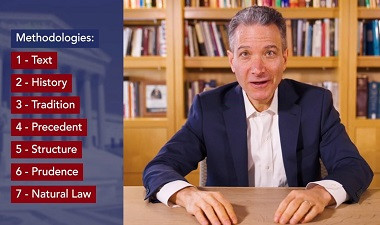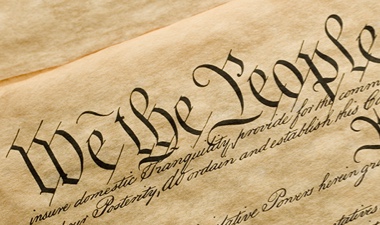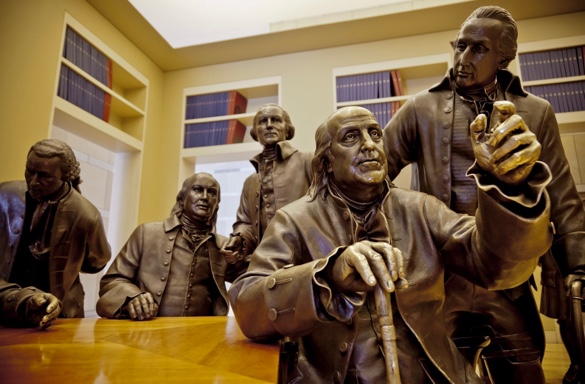
Constitution 101 Course
Start your constitutional learning journey

Constitution 101 With Khan Academy
Explore our new course that empowers students to learn the Constitution at their own pace.


Dive into learning about the electoral process, the executive branch, and the Constitution as you follow the 2024 presidential election. Our free, nonpartisan classroom resources, primary source documents, short videos, virtual events, and exhibit explorations are available to craft relevant lesson plans for students and engage learners of all ages.
Learn More10 a.m. – 5 p.m.

Join us for live virtual classes and other interactive online events for learners.

Browse the latest educational videos on a range of topics and recoded sessions from our live classes.

Read over 150 primary source documents that inspired the Founders and defined modern thought about rights and liberties.
The 25th Amendment defines procedures for replacing a president or vice president in the event of death, removal, or resignation, and for handling situations of presidential incapacity.
The Twenty-Fifth Amendment seeks to answer a series of questions raised by the original Constitution’s treatment of presidential and vice-presidential vacancies and presidential disability.
The 25th Amendment deals with vacancies in the office of the presidency, and the process to follow when a president suffers a disability or inability.
Explaining the 25th Amendment and what happens if the president becomes unable to serve, experts join host Jeffrey Rosen.
The 22nd Amendment sets term limits for office of the president.
On November 5, 1940, President Franklin D. Roosevelt won a third term in office in an unprecedented act that would be barred by a constitutional amendment a decade later.
The Constitution’s 22nd Amendment is in the news after two congressional members engaged in a spirited debate this week about its purpose. To help readers understand the questions involved, here are some details about how the amendment that limits presidential terms of office became part of the Constitution.
The right of citizens of the United States to vote shall not be denied or abridged by the United States or by any State on account of sex.
Telling the story of the 19th Amendment from the Civil War through its ratification to today, 19th Amendment experts Reva Siegel and Laura Free join host Jeffrey Rosen.
Celebrate the 19th Amendment with Speaker Nancy Pelosi, Secretary Condoleezza Rice, Abby Wambach, and others.
On the anniversary of the 19th Amendment's ratification, we look back at a young politician whose unexpected vote in the Tennessee state legislature gave all women the right to vote.
While the Reconstruction Amendments were an important step in ensuring equal rights for all people, injustices continued throughout the United States.
Experience the Constitution through rare artifacts, historic documents, interactive galleries, and live programming.

The Center's newest gallery offers a fresh perspective on the history of the First Amendment and how it impacts us today.

Signers’ Hall invites you to sign the Constitution alongside 42 life-size, bronze statues of the Founding Fathers.